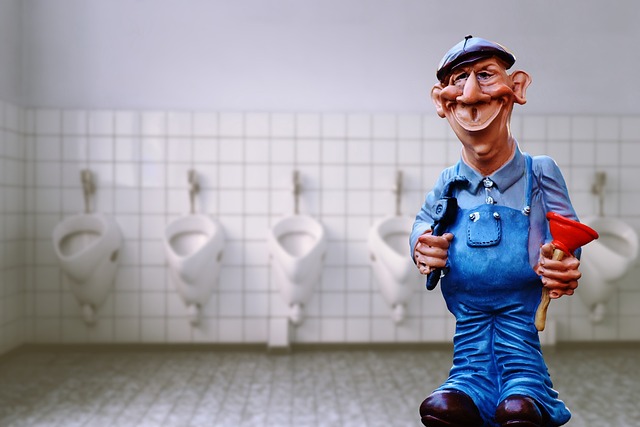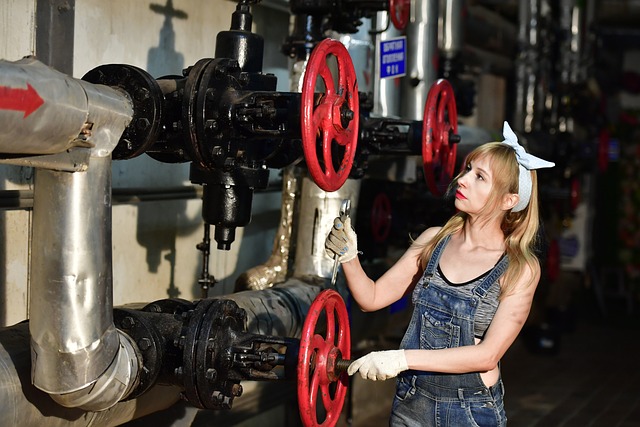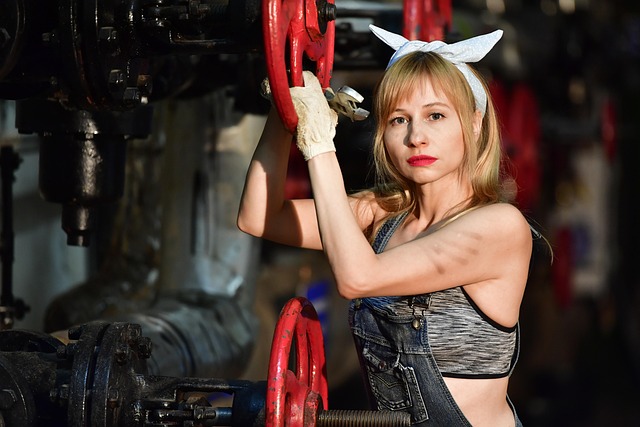Outdated plumbing systems waste water and energy, posing challenges for both homeowners and the environment. Plumbers identify inefficiencies through regular checks, detect leaks, and recommend modern upgrades like low-flow fixtures and efficient toilets. These fixes conserve water, reduce energy bills, and promote environmental sustainability, making plumbing upgrades a wise investment.
Considering an upgrade to your plumbing? It might be time to assess your home’s efficiency—or water conservation capabilities. Outdated plumbing can lead to significant wastage, impacting both your wallet and the environment. In this guide, we’ll explore the benefits of modernizing your system. From identifying leaks and waste to implementing efficient fixtures and strategies, you’ll discover how a plumber can transform your space, reducing costs and promoting sustainability. Read on for a comprehensive overview of plumbing upgrades and their long-term advantages.
- Understanding the Impact of Outdated Plumbing
- Identifying Areas for Improvement: Leaks and Waste
- Efficient Fixtures and Technologies
- Conservation Strategies: Long-Term Benefits and Cost Savings
Understanding the Impact of Outdated Plumbing

Outdated plumbing systems can significantly impact your home’s water efficiency and conservation efforts. Older pipes, fixtures, and appliances often lack modern innovations designed to reduce water wastage. For instance, older toilets might use as much as 3.5 gallons per flush compared to the current standard of 1.6 gallons or less. Similarly, outdated faucets and showerheads can spray water at higher rates, leading to unnecessary water consumption over time.
Hiring a plumber is often a crucial step in identifying these inefficiencies and implementing fixes. They can assess your plumbing system and recommend upgrades tailored to your needs. From installing low-flow fixtures to replacing outdated pipes with more efficient models, these changes not only conserve water but also reduce energy bills associated with heating and pumping water.
Identifying Areas for Improvement: Leaks and Waste

Many homes have plumbing systems that are outdated or inefficient, leading to leaks and waste—a major problem for both homeowners and the environment. A plumber is a valuable resource in identifying these areas for improvement. They can detect subtle signs of leaks, such as mysterious water bills or damp spots in your home, which may go unnoticed by the average person. Regular checks and maintenance from a professional plumber can help pinpoint problematic areas before they become significant issues.
By addressing leaks promptly, homeowners can save a substantial amount of water annually. Moreover, modern plumbing upgrades offer more efficient fixtures and appliances that reduce water consumption without compromising performance. Plumbers can install low-flow showerheads, aerators on faucets, or dual-flush toilets, all of which are simple yet effective ways to conserve water.
Efficient Fixtures and Technologies

Upgrading plumbing fixtures and installing modern technologies can significantly enhance both efficiency and water conservation efforts. Plumbers often recommend high-efficiency low-flow faucets, showerheads, and toilets as basic yet effective changes. These fixtures reduce water usage without compromising performance, saving homes and businesses on their water bills.
Advanced technologies like smart shower systems, automatic faucet sensors, and efficient washing machine models further contribute to these goals. Smart showers allow precise temperature control and customizable settings, ensuring users receive the desired experience while minimizing water waste. Automated faucets with motion sensors eliminate unnecessary water runoff, especially in commercial spaces. Efficient washing machines utilize less water per load, reducing consumption and energy costs. These updates not only promote sustainability but also provide a modern, user-friendly experience for occupants.
Conservation Strategies: Long-Term Benefits and Cost Savings

Implementing water conservation strategies through plumbing upgrades isn’t just an eco-friendly choice; it’s a smart investment for your wallet in the long run. A plumber can recommend and install various efficient fixtures, such as low-flow showerheads and aerators on faucets, which significantly reduce water usage without compromising performance. These simple yet effective changes can lead to substantial cost savings over time, as they curb unnecessary water wastage.
Moreover, modern plumbing systems often incorporate smart technologies that allow for precise control and monitoring of water usage. From intelligent toilets that use only the necessary amount of water per flush to advanced piping networks that detect leaks and automatically shut off supplies, these innovations ensure maximum efficiency. By adopting such measures, homeowners not only contribute to environmental sustainability but also benefit from lower utility bills, making plumbing upgrades a beneficial long-term strategy for any property.
Upgrading your plumbing system is a smart move, not just for reducing water bills but also for minimizing environmental impact. By addressing leaks, installing efficient fixtures, and adopting conservation strategies, you’re making a significant contribution to sustainability. A professional plumber can guide you through these changes, ensuring long-term benefits and potential cost savings. It’s an investment in your home and the planet.
